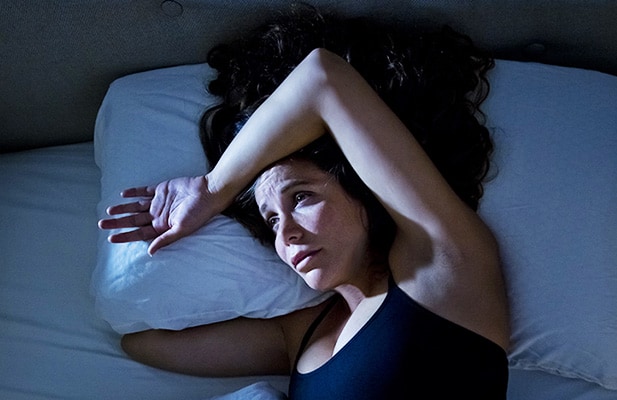If it’s summertime and your room is blistering hot, then it’s perfectly normal for you to sweat a lot in bed. Such is referred to as excessive sweating and not necessarily hot sweats, which is something that cannot be blamed on external factors such as the season or climate.
Are you sweating unnecessarily at night which keeps you from getting some shut eye or rousing you from a sweet dream and you’re quite sure that the room temperature is conducive to sleep? Keep on reading. Below are some of the reasons why night sweats strike.
Because it’s a common issue, some of your family and friends may be being bugged by night sweats, too. Repost this article to let them know some of the culprits behind it.
Menopause
It’s no secret that hot flashes are some of the most unfavorable symptoms of menopause. Those hot flashes can strike at any given time or day. And if they choose to make their presence known during bedtime, then night sweats happen.
Evidently, menopause-related hot flashes that cause night sweats can be blamed on hormonal imbalance. Undergoing hormone therapy can help put those night flashes under control as well as other common menopause symptoms.
Infection
When an infection is taking place within the body, it’s not unlikely for the core temperature to rise in order to assist the immune system in winning the war against those microbes. It’s for this reason why night sweats are very common among those who have fever due to an infection.
Abscesses, osteomyelitis and endocarditis are known to cause night sweats due to the fever they tend to bring. However, there are certain types of infection that are known to cause night sweats even with the absence of fever. One of those is pulmonary tuberculosis. HIV is another example.
Medications
There are certain medications that are known to cause night sweats as some of their side effects. Some of those that tend to cause night sweats in most people who take them are antidepressants. A few other psychiatric medications can cause night sweats, too.
Fever-reducing drugs (antipyretics) such as acetaminophen and aspirin may also cause night sweats to strike. If you feel that a prescribed medication is causing your night sweats, don’t just quit taking it — report the symptom to your doctor to see if another dosage or medication may be given.
Hypoglycemia
Simply put, hypoglycemia is low levels of glucose or sugar in the blood. When sugar in your blood drops to abnormally low levels, you may experience symptoms such as extreme hunger, dizziness, tremors, blurring of vision, rapid heart rate and profuse sweating.
When hypoglycemia happens at bedtime, it’s not unlikely for you to experience night sweats. While it’s true that hypoglycemia is common among diabetics, it’s also something that may happen to individuals who are dieting, obese or have certain digestive issues.
Hyperhidrosis
Everyone in the medical community is calling it hyperhidrosis, but others simply refer to it as excessive sweating. Someone who is suffering from hyperhidrosis can have considerably diminished self-confidence and also sleepless nights if such causes night sweats.
There are many different things that can be blamed for hyperhidrosis. Health authorities say that it can be due to infections, endocrine, neurologic and other systemic diseases. Stress and the mood can also cause excessive sweating in people with hyperhidrosis, but many of those who have the said condition tend to sweat a lot at any given time or day.
WARNING: The pieces of information above should not be mistaken for professional advice. If your night sweats are really bugging you, pay your doctor a visit.













